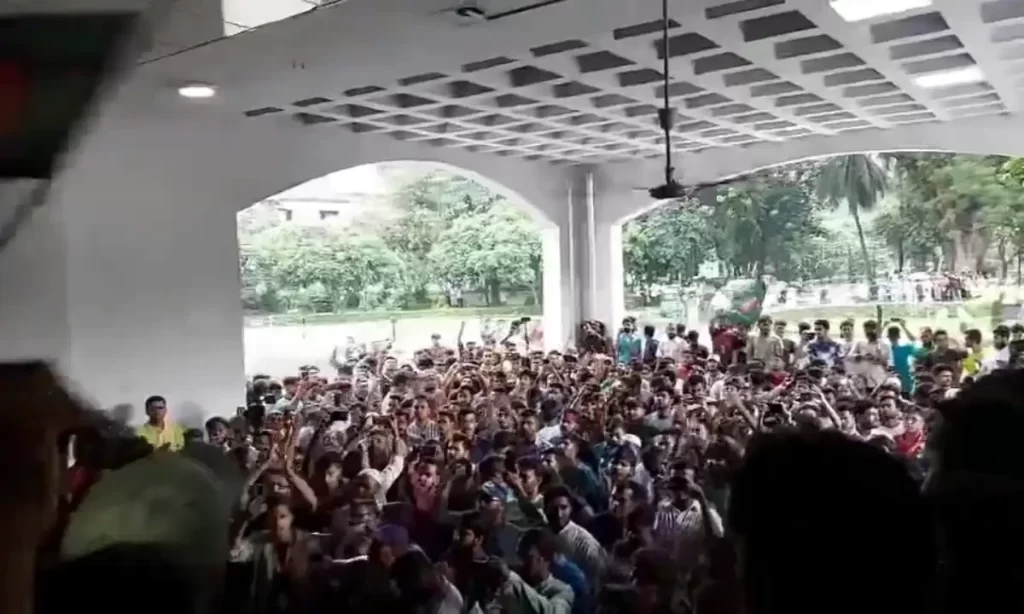DHAKA: Bangladesh Chief Justice Obaidul Hassan has resigned as the head of the judiciary after thousands of protesters surrounded the Supreme Court building on Saturday.
The protest erupted in response to reports that the Chief Justice was planning to convene a full court meeting of judges, potentially taking action against the interim government.
Chief Justice Hassan made his decision to step down around 1 p.m. on Saturday, following the large gathering of protesters at the Supreme Court premises. He is expected to formally submit his resignation to President Mohammed Shahabuddin later in the evening.
The demonstrations were sparked by Hassan’s recent call for a full court meeting involving all justices of the Supreme Court, which many protesters interpreted as a threat to the interim government. Accusations of attempting a judicial coup led to the blockade of the court by demonstrators, who issued an ultimatum demanding the resignation of the Chief Justice and the justices of the Appellate Division.
Facing mounting pressure, Hassan initially postponed the court meeting before ultimately deciding to resign.
Law Adviser Professor Asif Nazrul commented on the situation, stating that the resignation was necessary to preserve the dignity of the judiciary. He criticized Hassan for his controversial handling of student grievances and pointed to his stays at the residences of Awami League leaders during overseas trips as a source of protester discontent.
The protests, which included both students and lawyers, led to the occupation of the Supreme Court premises and the deployment of Bangladesh Army personnel to maintain security. Army members were stationed across key areas of the Supreme Court complex and urged the protesters to remain peaceful.
Protest leader Abdul Muqaddim alleged that the Chief Justice’s actions were part of a larger conspiracy to undermine the interim government, further fueling the outrage among demonstrators.
As the situation unfolded, Asif Mahmud, adviser to the Sports Ministry of the interim government, also called for Hassan’s unconditional resignation and the cancellation of the full court meeting.
This incident is part of a broader wave of unrest in Bangladesh, which began as a protest against a controversial quota system for government jobs and has since expanded into wider demands for political change. The resignation of Prime Minister Sheikh Hasina and the establishment of an interim government led by Nobel laureate Muhammad Yunus have only heightened the political tensions.
Chief Justice Obaidul Hassan’s resignation marks a pivotal moment in the ongoing conflict between the judiciary, student activists, and the interim government as Bangladesh navigates this turbulent period.


